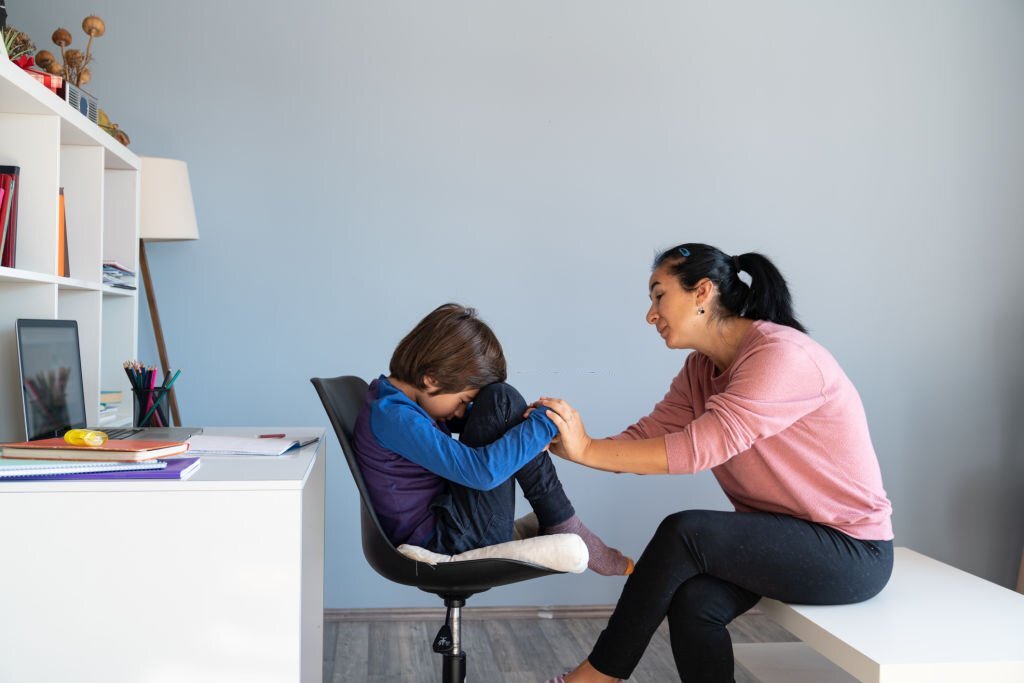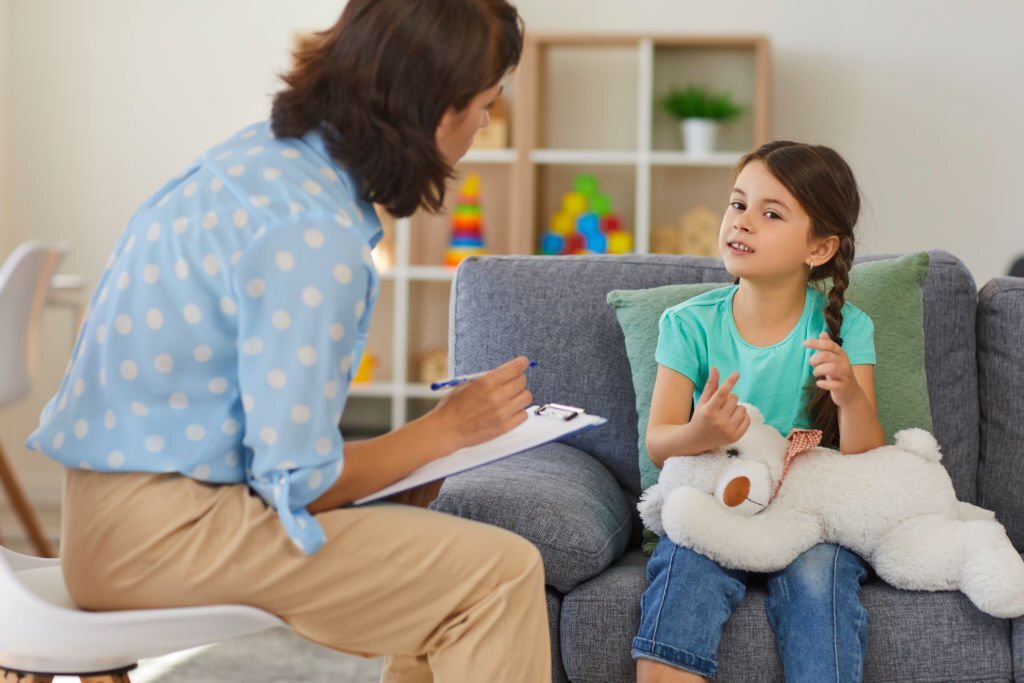Mental health is a critical issue for children and adolescents, yet it’s often overlooked. Mental illness can manifest in many different ways with different levels of severity, making it difficult to recognize and address in the appropriate manner. In this article, we will discuss how mental health counseling for children and adolescents can help them better cope with their difficulties and provide support during difficult times.
Introduction to Mental Health Counseling for Children and Adolescents
Mental health counseling for children and adolescents can be a difficult and daunting task. However, it is important to remember that these young people are going through a tough time in their lives and need our support. As mental health counselors, we can provide them with the tools they need to cope with their difficulties and help them lead happy and healthy lives.

To begin with, it is important to understand what mental health counseling is and how it can help children and adolescents. Mental health counseling is a type of therapy that helps people deal with their emotions and thoughts. It is a type of anxiety counseling that can be used to treat a wide variety of mental health problems, such as anxiety, depression, stress, trauma, and more. Counselors work with their clients to help them understand their thoughts and feelings, develop healthy coping skills, and make positive changes in their lives.
Mental health counseling can be extremely beneficial for children and adolescents. It can help them learn how to cope with their problems in a healthy way, develop positive thinking patterns, improve communication skills, and build self-esteem. Counseling can also provide a safe space for young people to express themselves freely without judgment.
If you are considering mental health counseling for your child or adolescent, there are a few things you should keep in mind. First of all, it is important to find a counselor who is experienced in working with young people. They should be someone who your child feels comfortable talking to and who makes them feel safe. It is also important
It can be difficult to know how to support your child when they are going through a tough time. Here are some tips from mental health counselors that can help:
How Can You Support Your Child Through Difficult Times?
- Please encourage your child to talk about their feelings and listen to them without judgment.
- Help them identify healthy coping mechanisms, such as exercise or journaling, and encourage them to use these when they are feeling down.
- Make sure they are getting enough sleep and eating a balanced diet.
- Encourage them to socialize with friends and participate in activities they enjoy.
- Talk to their school counselor or another trusted adult about what your child is going through.
- What is Cognitive Behavioral Therapy (CBT)?
Cognitive Behavioral Therapy, or CBT, is a type of psychotherapy that helps people change their negative thinking and behavior patterns. CBT is based on the idea that our thoughts, feelings, and behaviors are all interconnected, and that by changing our thoughts, we can change our behavior.
CBT has been shown to be effective in treating a wide range of mental health disorders, including anxiety, depression, OCD, eating disorders, and substance abuse. CBT can be used with children as young as 3 years old and is often used in schools to help children cope with stress and emotional problems.
If you think your child may benefit from CBT, please talk to your child’s doctor or mental health professional.
Benefits of CBT for Children and Adolescents
CBT has been shown to be an effective treatment for children and adolescents struggling with mental health issues. CBT can help children and adolescents learn how to cope with their symptoms, manage their emotions, and improve their overall functioning. CBT has also been shown to reduce the risk of relapse in children and adolescents who have experienced a mental health disorder.

Steps to Supporting Emotional Regulation in Kids
1. Talk to your child about what they are feeling:
It is important to validate your child’s emotions and let them know that it is okay to feel angry, sad, or frustrated. Help them label their emotions and talk about how they can cope with these feelings in a healthy way.
2. Encourage positive self-talk:
Help your child identify negative self-talk and replace it with positive, affirmative statements. This will help them reframe their thoughts and better deal with their emotions.
3. Model emotional regulation:
Be a good role model for your child by managing your own emotions in a healthy way. Show them how to take deep breaths, count to 10, or walk away from a situation when necessary.
4. Promote healthy outlets for emotions:
Help your child find constructive ways to express their emotions, such as through writing, art, music, or physical activity.
5. Encourage relaxation techniques:
Teach your child relaxation techniques such as progressive muscle relaxation or meditation. These can help them calm down and better deal with difficult emotions.
Tips for Working with Children and Adolescents in Mental Health Counseling
It can be difficult to know how to best support children and adolescents who are going through tough times. As a mental health counselor, you are in a unique position to help them cope with whatever they are facing. Here are some tips to keep in mind when working with children and adolescents in mental health counseling:
- Be patient. It may take some time for them to open up to you.
- Create a safe and comfortable environment. This will help them feel more at ease and make it more likely that they will share what is on their mind.
- Listen attentively and without judgment. Let them know that you understand what they are going through and that you want to help however you can.
- Offer guidance and support, but let them ultimately make their own decisions. They need to feel like they have some control over their situation.
- Encourage positive coping mechanisms, such as journaling or spending time outdoors in nature. Help them find healthy ways to deal with their emotions.
The Role of Communication in Mental Health Treatment for Youth
Mental health counseling for children and adolescents can be a vital support during difficult times. Good communication is essential to establishing a trusting relationship and creating a safe environment for kids to share their thoughts and feelings.
As a mental health counselor, you will need to be able to effectively communicate with youth of all ages. You will need to be able to understand their unique perspectives and experiences and help them express themselves in a way that is comfortable for them.

Some common topics you may discuss with your young clients include bullying, depression, anxiety, family conflict, grief, low self-esteem, peer pressure, and substance abuse. It is important to remember that each child or adolescent is an individual, so no two cases will be exactly alike.
Your role as a mental health counselor is to provide support and guidance as your clients navigate through these tough issues. You will help them develop coping skills, build resilience, and find hope for the future. With your help, they can overcome any challenge they may face.
Mental health counseling for children and adolescents is an invaluable resource that can help these young people navigate the challenges of growing up. By providing guidance and support, mental health counselors can offer insight into how to better cope with difficult situations, manage emotions, improve communication skills, and foster a positive outlook on life. It is important to remember that all children have unique needs when it comes to emotional development, so it’s important to find the right individualized care tailored specifically for each child’s situation. With patience and understanding, we can help them as they learn how to express themselves in healthy ways while developing strong coping skills that will last a lifetime.
Comprehensive Psychiatric Care for Mental Well-Being
For those in need of professional psychiatric care, the best mental hospital in Lahore offers expert counseling and therapy services. With a team of skilled psychiatrists and psychologists, the facility provides personalized treatment plans to help individuals overcome their mental health struggles and lead fulfilling lives.
Best Psychiatrist in Lahore
Dr. Syed Zahid Qutab is a highly respected psychiatrist in Lahore, Pakistan, known for his compassionate and effective approach to treating a range of mental health conditions. He is a leading expert in his field, utilizing the latest research and techniques to provide top-notch care to patients. He is associated with the Lahore Psychiatric Hospital, which is one of the most reputable institutions in the country, providing a wide range of mental health services and facilities. Dr. Qutab’s holistic approach, specialized treatment of depression, anxiety, PTSD, bipolar disorder, addiction, and substance abuse, and his counseling for couples and families makes him a top choice for psychiatric care in Lahore.
